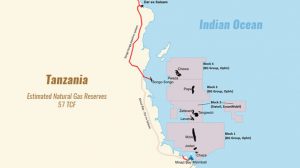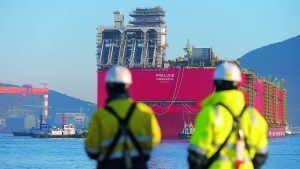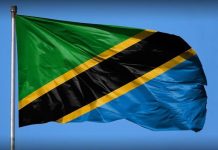Reported by
Faridah N Kulumba
Africa-Press – Tanzania. Tanzania’s government expects to conclude an agreement on Liquefied Natural Gas worth $30 billion within six months after the new president Samia Suluhu Hassan ordered a speedy conclusion of the agreement.
On the 29 April 2021 President Samia called for a resumption of negotiations with giant companies London-Shell and Norway’s Equinor that had stalled during President John Pombe Magufuli’s regime, for more than a year now as Bloomberg reported.
The managing Director of the Tanzania Petroleum Development Corporation James Mataragio told Bloomberg in a phone interview that:-
“The government’s negotiation team has already been formed ahead of the resumption of talks and we will be preparing from next week to restart negotiations with the investors as soon as possible,” said Mr Mataragio.
One of the developers, Equinor took a $982 million impairment on the project in January, which it said would be reversible, after failing to settle terms with Tanzania’s government.
Other international companies include Royal Dutch, Exxon Mobil Corp, Ophir Eneergy Ltd and Pavilion Energy Pte.
The first negotiation obstructions

In 2017,the negotiations between the Tanzania government and International Oil and Gas Companies (IOGC) on Liquefied natural gas stopped because they failed to agree on modalities together and later they agreed to undertake it separately.
In 2018 they resumed the negotiations, but encountered a hitch after the Production Sharing Agreements were taken to the Attorney General for review, stalling negotiations.
Tanzania was seeking to scrap sections on the contract that seem tilted against it.
The negotiations were expected to have concluded by 2019 but Marie Msellemu Tanzania’s Petroleum Development Corporation communications manager explained to The Citizen that they were finalising compensation for the land in Lindi for the liquefied natural gas site.
But why not concluded during Magufuli’s administration?
Investor sentiment over Tanzania soured after the administration of former President John Magufuli overhauled mining legislation and ordered contracts renegotiated afresh.
Tanzania had hoped to resume talks aimed at kick-starting the project following the re-election of President Magufuli in October 2020, who had called for review of Production Sharing Agreements clauses related to repatriation of funds, arbitration issues, revenue sharing and parliamentary power. But unfortunately Magufuli died of heart condition in March 2021.
However his successor, the newly sworn in president Samia Suluhu Hassan told members of parliament last week that the talks over the liquefied natural gas plant had dragged on too long and pledged to finish them speedily so the project can be implemented.
Tanzanian journalist Isaac Mumena told Africa-Press that Tanzania started developing its gas resources commercially only a decade ago, but major gas finds have accelerated the development of its petroleum sector and affected the country’s whole political economy.
” The evidence from Tanzania suggests that negotiation processes involve other important issues, which will affect the price a government can get,” said Mumena.
International Companies say

Shell and Equinor together with a number of other international companies urged the government of Tanzania to take immediate action to conclude talks on the country’s planned liquefied natural gas export facility, warning that the time to develop new gas resources was limited The Citizen reported.
“Natural gas has a key part to play in the global energy transition, but the window in which to act to develop new resources is limited,” said Shell’s country chair Frederik Grootendorst and his counterpart at Equinor, Mette Halvorsen Ottoy.
They also wrote that a huge opportunity for Tanzania to benefit from its rich gas resources is within its grasp, and that 2021 must be the year when action is taken to conclude the negotiations.
“Collaboration will not only bring the best outcome for Tanzania and for the project, but will also make the project more competitive in the global marketplace, produce and process vast amount of natural gas to power Tanzania’s industrialization plan, support the country’s ambitions to supply gas to the region, and reduce dependence on imported oil,” wrote Grootendorst and Ottoy.







